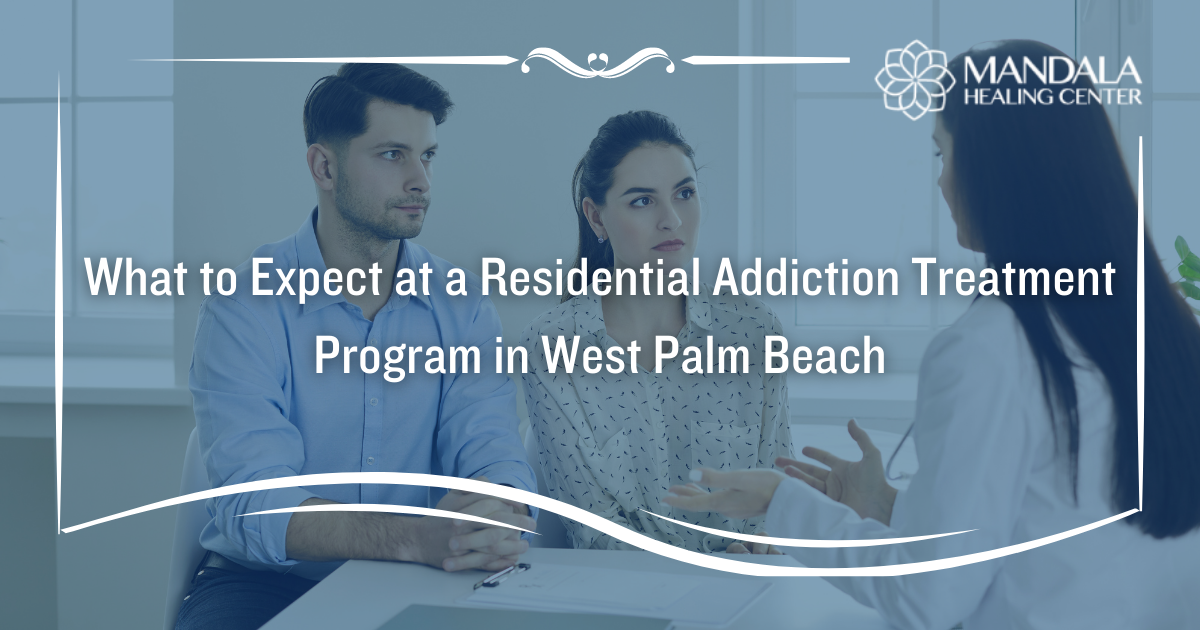Addiction has become an increasingly common issue in today’s society. In 2015, 21.7 million Americans fit the criteria for a substance use disorder. Out of those 21.7 million people, only 2.3 million of them received addiction treatment.[1] While the need for addiction treatment in America is rising each day, the amount of people seeking help is plummeting.
One of the reasons people may avoid attending addiction treatment is due to a fear of the unknown. Deciding to attend drug and alcohol rehab can be scary, especially when individuals are not familiar with the processes of said treatment. Because of this, addiction treatment education is more important than ever. Knowing what to expect at a residential addiction treatment program can help break the stigma surrounding addiction and treatment.
What is Residential Treatment?
Residential addiction treatment is the most effective and intensive form of substance abuse care. These programs require their patients to reside on-site, providing them with 24/7 supervision and support throughout their recovery process. Additionally, residential treatment is more of a “long-term” approach to addiction treatment than outpatient programs. For example, many people spend a minimum of 3 months to 6 months in residential facilities. This allows patients plenty of time to reap the benefits of an array of addiction treatment services that their residential program offers.
The services commonly offered during a residential program include:
- Medication-assisted detox for individuals suffering from withdrawal symptoms
- Medication-assisted treatment (MAT)
- Individual therapy that is specific to the patient’s needs
- Group counseling sessions
- Family and couples counseling
- Addiction education groups
- Help with building healthy coping mechanisms to maintain sobriety in the real world
- Aftercare services for individuals integrating back into society after completing treatment
Why is Residential Drug and Alcohol Rehab Preferred?
Residential care is often named as the best form of drug and alcohol treatment, but why? According to The National Institute on Drug Abuse, “research has shown unequivocally that good outcomes are contingent on adequate treatment length”.[2] Residential programs offer the longest treatment plans when compared to other forms of addiction treatment programs.
Residential addiction treatment centers in West Palm Beach also provide patients with 24/7 access to medical and psychological care. If a patient begins to experience an emergency in the middle of the night, they will receive an immediate professional intervention. This benefit is unparalleled when you consider that other forms of addiction treatment programs have their patients return to their homes at night.
Important Aspects of Residential Addiction Treatment in West Palm Beach
Residential programs utilize evidence-based addiction treatment methodologies, ensuring that their patients receive the best care possible. From medication-assisted treatment to relapse prevention, residential drug rehab programs cover all bases when it comes to addiction recovery.
Medication-Assisted Detox and Treatment (MAT)
When a person decides to get sober, they may experience uncomfortable symptoms of withdrawal. This is where medication-assisted detox comes in. Instead of letting the patient suffer through withdrawal symptoms, doctors will prescribe FDA-approved medications to soothe their symptoms. This is extremely important due to the prevalence of relapse among individuals in the withdrawal stages of early recovery.
Additionally, residential treatment programs offer medication-assisted treatment (MAT). MAT is a process used to help individuals recover from opioid or alcohol addiction. Similar to medication-assisted detox, MAT utilizes FDA-approved medications. However, MAT medications prevent drug cravings and stop the patient from being able to experience the effects of opioids or alcohol in case of a relapse.
Individual Therapy and Group Counseling
Residential treatment places a huge emphasis on recovery from the psychological causes and effects of addiction. Individual therapy, group counseling, and family counseling are used throughout all stages of a patient’s treatment plan.
The types of therapy utilized will depend solely on the patient’s unique needs and goals, however, there are a few common forms of therapy utilized during residential treatment. These include:[3]
- Cognitive Behavioral Therapy (CBT)
- Contingency Management (CM)
- Motivational Interviewing (MI)
- The Matrix Model
- 12-Step Facilitation Therapy
- Family Behavior Therapy
- Dialectical Behavior Therapy (DBT)
- Pharmacotherapies
Aftercare Planning
An integral aspect of drug rehab is aftercare planning and relapse prevention tools. Because most individuals who suffer from addiction have a hard time dealing with everyday stressors and triggers, residential rehab created a comprehensive plan for reintegrating into society.
Aftercare planning includes:
- Referrals to outpatient treatment or transitional housing
- Relapse prevention plans that include a list of triggers and healthy coping mechanisms
- Access to alumni groups
- Lists of supportive friends and family to call
- Referrals to addiction recovery groups like AA or SMART Recovery
- Ongoing counseling
- Vocational rehabilitation
- Legal help
- Educational assistance
Attend a Residential Addiction Treatment Program in West Palm Beach
Residential addiction treatment in West Palm Beach is the best choice for individuals suffering from addiction. At Mandala Healing Center, we provide an individualized approach to addiction treatment to ensure that our patient’s needs are met. By combining evidence-based addiction therapies and holistic approaches to recovery, our residential program provides a strong foundation for recovery. To learn more about residential treatment at Mandala Healing Center, contact us today.
References:
- https://www.samhsa.gov/data/sites/default/files/report_2716/ShortReport-2716.html
- https://www.drugabuse.gov/publications/principles-drug-addiction-treatment-research-based-guide-third-edition/frequently-asked-questions/how-long-does-drug-addiction-treatment-usually-last
- https://www.drugabuse.gov/publications/principles-drug-addiction-treatment-research-based-guide-third-edition/evidence-based-approaches-to-drug-addiction-treatment/behavioral-therapies












